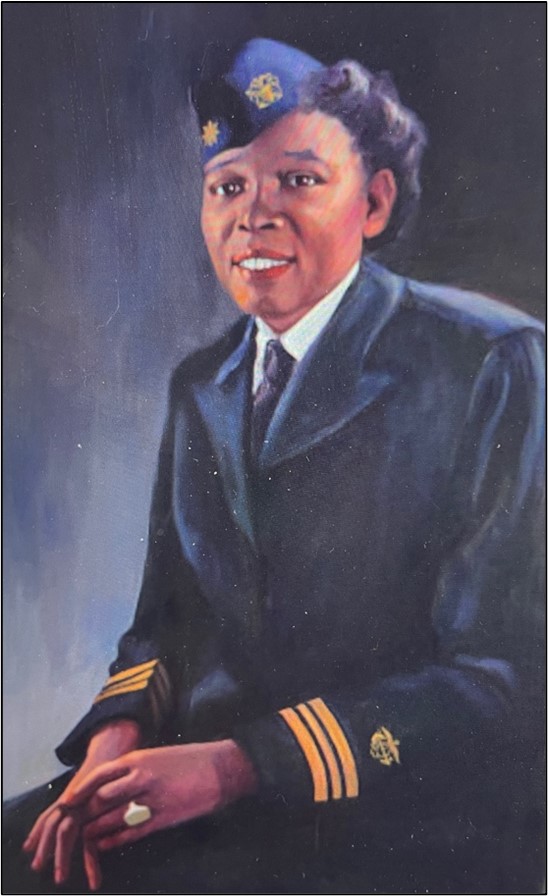President’s Letter
April 2022

Mary Mills, MSN, MPH, RN, CNM, USPHS
(1912-2010)
National Portrait Gallery, Smithsonian Institution; gift of the Harmon Foundation
Many countries adopt causes or special interest groups to highlight and promote during a given calendar month. Although there are many national month observances in the spring, April is one of the few months that doesn't have a long list. One that I think is particularly relevant this April is Black Women's History Month and there are two individuals I’d like to mention. The first is our current Supreme Court nominee, Judge Ketanji Brown Jackson. As our nation’s first Black American woman nominated to serve on the Supreme Court, Judge Jackson has extensive experience working with in the court system. She is the most qualified nominee in decades and received the highest recommendation the American Bar Association provides. But as Judge Jackson works her way through the confirmation process, I am reminded that in spite of her significant qualifications, recommendations by her peers and support by the President of the United States, many U.S. Senators will vote “no” on her confirmation. There are a few reasons why they will not vote to confirm her, but chief among them is her race. Even so, she will be confirmed. Change comes slowly but when it does occur, the ripple effect is immeasurable. With respect to this nomination, we are living through history and it gives me hope.
Another person to highlight during Black Women’s History Month is an individual of extraordinary achievement, Mary Wallace Mills. Mills was a diploma graduate of Lincoln Hospital School of Nursing in North Carolina in 1934 and earned a certificate in Nurse midwifery, as well as Bachelors and Masters degrees from New York University. She was commissioned as an officer in the United States Public Health Service (USPHS) in 1946. In her role as a senior nurse, Mills developed public health programs in Liberia, Lebanon, Chad, South Vietnam and Laos. In each of these countries she established maternal/child health clinics, nursing schools and health education programs. She was honored for her work establishing a children’s hospital in Liberia and created Lebanon’s first school of nursing. Mills was the recipient of several humanitarian awards, including Lebanon's National Order of the Cedar and the Knight Official of the Liberian Humane Order of African Redemption. After twenty years of service, she returned to the United States, joining the Department of Health, Education, and Welfare as a consultant. Her portrait, which hangs in the National Portrait Gallery, was part of an exhibition of “Portraits of Outstanding Americans of Negro Origin”, which opened at the Smithsonian in 1944 and documented noteworthy African American contributions. Painted by artist Betsy Graves Reyneau, Mill’s portrait, painted in a formal setting, sought to convey her extraordinary accomplishments while serving as a visual rebuttal to racism. The portrait was part of a nation-wide exhibit that toured the country for ten years.
There are so many excellent examples of the contributions of Black women in history. I’m honored to be able to highlight a few, and excited to witness the historic confirmation of the first Black woman to the U.S. Supreme Court.
All the best,
Melissa Sherrod
President AAHN (2020-2022)
References:
https://nursinghistory.appstate.edu/biographies/mary-mills
https://npg.si.edu/object/npg_S_NPG.67.19
|